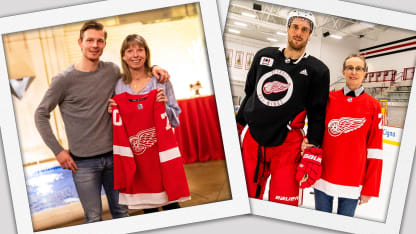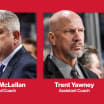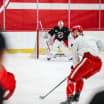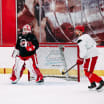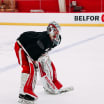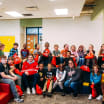Ehn has a younger daughter, Rebecca, who is also an athlete and said sports has always helped her remain close to her kids. "
That was also part of them growing up, to be able to go with them to all these things," Ehn said. "Even though they were seven or 12 or 16 or whatever, there have always been so many things as a parent that you get to experience. You get to meet lots of nice parents and experience these things with them.
"So even though I know that other parents maybe have kids that are not so involved in activities, they thought, when do you spend time with them? I spend a lot of time with them - in the car, going back and forth. I get a lot of quality time. So I think that's even more than if kids didn't have such activities. They would be more with friends, I think. So I think for me, it was really nice."
The systems in hockey are a bit different in Sweden than they are in North America, but it still often means that kids leave home at an early age.
"When he was 16, he was able to play on this team. It's more connecting with the school," Ehn said. "So it's a bit different how the system is built up with the clubs and then they have like high school, sports high schools, like a hockey school. So it's a bit different.
"He moved an hour and a half away when he was 16. So he lived in his own apartment. Of course we were not that far away. But still, it's growing up and learning to take responsibility very early. So going here, he was kind of prepared, I think, with being on his own."
Nemeth said she had an inkling that Patrik could reach the NHL when he was a teenager.
"I have that feeling since he was 15-16," Nemeth said. "But I'm his mom. He worked hard on the ice and outside the ice. I thought he was capable."
